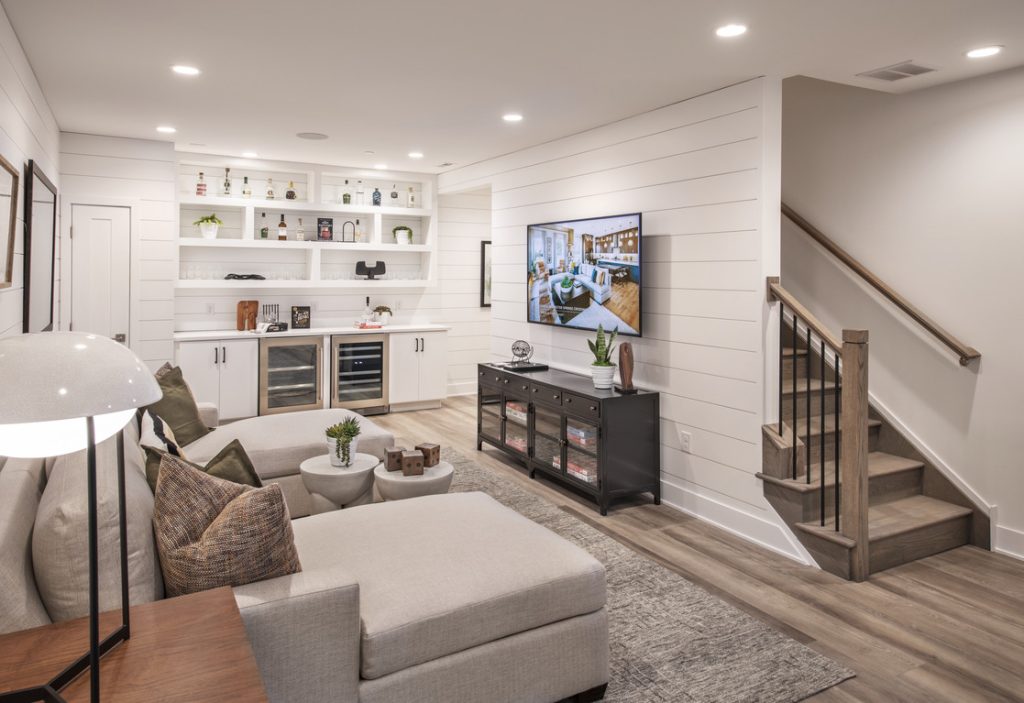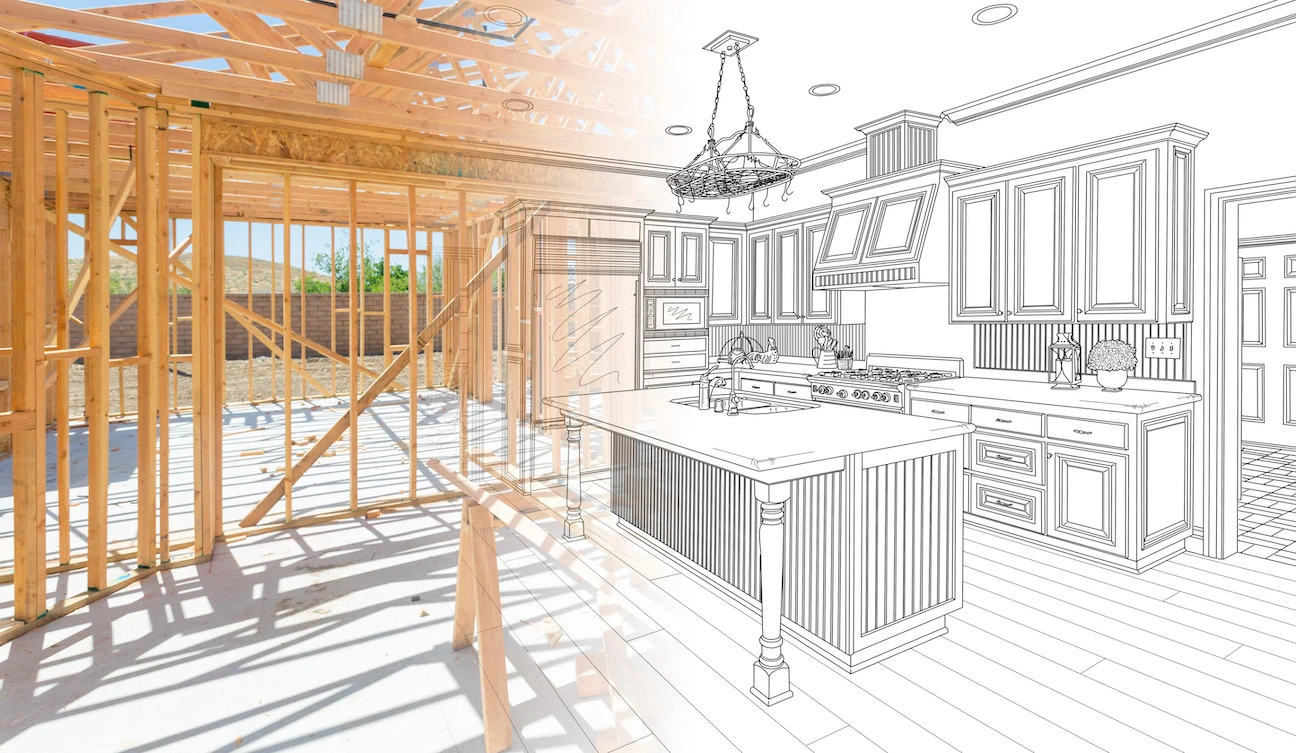How to Choose a General Contractor for Your Next Home Remodel or Build in Danville
Embarking on a home remodel or new build is an exciting journey, but it can also be overwhelming. One of the most critical decisions you’ll make is choosing the right general contractor. This company will be responsible for turning your vision into reality, ensuring the project stays on time, within budget, and meets your quality expectations. With so much riding on this choice, it’s essential to approach it with a well-informed strategy. In this article, we’ll walk you through the key factors to consider when choosing a general contractor for your next home remodel or build.

1. Understand Your Project Needs
Before you start reaching out to contractors, it’s crucial to have a clear understanding of your project. Are you planning a small kitchen remodel, a complete home renovation, or building a new house from scratch? The scope, size, and complexity of your project will influence the type of contractor you need. For example, a small-scale bathroom renovation might only require a contractor who specializes in that area, whereas a full home build will require a contractor with experience in managing large, multifaceted projects. Typically, a larger GC or company will also do commercial work, and may have less focus on the residential side of their business as they expand and grow.
Spend time detailing your project. Create a list of must-haves and nice-to-haves, set a budget, and have a rough timeline in mind. This will help you communicate your expectations clearly to potential contractors and assess whether they’re equipped to handle the job.
2. Research Potential Contractors
Once you know what your project entails, begin researching potential contractors. You can start by asking for recommendations from friends, family, or neighbors who have completed similar projects. Online resources like review websites, social media, and forums can also provide valuable insights. Look for contractors who specialize in the type of work you’re planning and have a solid reputation for quality and reliability.
When researching, pay attention to the contractor’s experience, portfolio, and reviews. A contractor with a strong portfolio of similar projects demonstrates expertise and reliability. Reviews can give you a sense of how past clients felt about their work, including their ability to stay on schedule and within budget, as well as their communication skills and professionalism. Checking the companies Google My Business Profile for reviews and for photos of their past work will tell you a lot about if they are the type of company that could help you with your project.
3. Check Licenses and Insurance
A reputable general contractor should have all the necessary licenses and insurance. Licensing requirements vary by state, so make sure the contractor holds the appropriate licenses for your area. In Pennsylvania, check the contractors HIC#, or Home Improvement Contractor License Number. This not only ensures that the contractor has met the necessary qualifications but also protects you in case something goes wrong.
Insurance is equally important. At a minimum, the contractor should have general liability insurance and workers’ compensation insurance. This protects you from being held liable for any injuries that occur on your property during the project. Ask the contractor for proof of insurance and verify the coverage with the insurance provider. Ask specifically for a Certificate of Insurance or COI, this will be written directly to you from the insurance company to ensure that no tampering has happened and to make sure that the insurance company is up to date with the contractor.
4. Conduct Interviews and Get Multiple Bids
After narrowing down your list of potential contractors, schedule interviews with at least three of them. This gives you a chance to discuss your project in detail and gauge whether the contractor is a good fit. During the interview, ask about their experience with similar projects, their approach to managing timelines and budgets, and how they handle unexpected challenges.
It’s also a good idea to get multiple bids for your project. Be wary of bids that are significantly lower or higher than others. A low bid might indicate that the contractor is cutting corners or doesn’t fully understand the scope of the project, while a high bid could mean they’re overestimating costs. In essence, you should almost ALWAYS avoid the lowest bid, as you will likely be disappointed in the quality or experience delivered by that company.
5. Assess Communication and Compatibility
Good communication is key to a successful construction project. From the initial consultation through to project completion, you’ll need to be in regular contact with your general contractor. Pay attention to how responsive they are to your inquiries, whether they listen to your concerns, and how well they explain things. A contractor who communicates clearly and effectively will help ensure that the project runs smoothly and that any issues are quickly addressed.
Compatibility is another important factor. You’ll be working closely with this person or team for an extended period, so it’s important that you feel comfortable with them. Trust your instincts—if something feels off during your interactions, it might be best to look elsewhere. The general contractor will be working to connect with you and to help lead and guide you during the entirety of your project, so make sure that you really like, know, and trust the company before hiring them.
6. Verify References and Past Work
A good contractor should be able to provide references from previous clients. Don’t hesitate to contact these references and ask about their experience working with the contractor. Inquire about the quality of the work, whether the project was completed on time and within budget, and how the contractor handled any problems that arose.
If possible, visit some of the contractor’s completed projects in person. Seeing the quality of their work firsthand can give you a better sense of what to expect. If visiting isn’t possible, ask for detailed photos and descriptions of past projects. Also checking out the contractors Website and Social Media will give you a live feed of projects completed, customer interactions, and overall a feel for the level of work they are capable of doing.

7. Understand the Contract
Before signing anything, make sure you fully understand the contract. This document should detail every aspect of the project, including the scope of work, timeline, payment schedule, and any warranties or guarantees. It should also outline the process for handling changes to the project, resolving disputes, and terminating the contract if necessary.
Take the time to review the contract carefully and ask the contractor to clarify any points you don’t understand. If needed, consider having a lawyer review the contract to ensure your interests are protected.
8. Discuss Payment Terms
Payment terms can vary depending on the contractor and the project. Typically, you’ll make an initial down payment, followed by progress payments as work is completed, with a final payment due upon project completion. Be cautious of contractors who demand a large upfront payment or full payment before work begins—this is often a red flag.
A standard payment schedule might involve an initial deposit of 10-25%, with subsequent payments tied to specific milestones in the project. Make sure the payment schedule is clearly outlined in the contract, and avoid paying in cash if possible—checks or bank transfers provide a clear record of payment.
9. Consider the Contractor’s Network
A general contractor often works with a network of subcontractors and suppliers. Their ability to manage these relationships effectively can impact the success of your project. During your interviews, ask about the subcontractors they typically work with, their relationship with suppliers, and how they handle coordination among different trades.
A contractor with a strong, reliable network is more likely to complete your project on time and within budget. They’ll also have access to better pricing on materials and the ability to address any issues with subcontractors quickly.
10. Prioritize Quality and Value Over Cost
While staying within budget is important, choosing a contractor solely based on the lowest bid can be a mistake. The cheapest option might end up costing you more in the long run if the work isn’t done correctly or requires extensive repairs. Instead, focus on finding a contractor who offers the best value—high-quality work at a fair price.
During the bidding process, evaluate the materials and craftsmanship proposed by each contractor. Quality materials and skilled labor might come at a higher cost, but they will pay off in the longevity and durability of the finished project.
11. Trust Your Instincts
After gathering all the information, take a moment to reflect on your options. Consider your interactions with each contractor, the thoroughness of their bids, and the feedback from references. Ultimately, trust your instincts. If you feel confident that a particular contractor understands your vision and will execute it well, that’s a good sign you’ve found the right fit. It is essential to understand that a contractor who makes you feel important is one who is focused more on serving you then on serving himself.
12. Plan for the Unexpected
No matter how well you plan, construction projects often come with unexpected challenges. Whether it’s an unforeseen issue with the foundation, a delay in material delivery, or a sudden change in weather, it’s important to work with a contractor who can handle these challenges calmly and professionally.
During your discussions, ask the contractor how they’ve dealt with unexpected issues on past projects and what strategies they use to keep the project on track. A contractor who is flexible and proactive in problem-solving will be better equipped to navigate any surprises that arise.
13. Establish Clear Communication Channels
Once you’ve chosen a contractor, establish clear communication channels. Decide how often you’ll have progress meetings, the preferred method of communication (phone, email, or in-person), and who your main point of contact will be. Regular updates and open lines of communication will help ensure that you’re always informed about the status of your project and can address any issues as soon as they arise.
14. Monitor Progress and Stay Involved
Even after you’ve selected a contractor, your involvement in the project is still crucial. Regularly monitor progress, ask questions, and provide feedback. This doesn’t mean micromanaging, but staying engaged helps ensure that the project stays on track and aligns with your expectations.
Make sure to document everything—keep records of payments, communication, and any changes to the project. This can be invaluable if any disputes arise later.
Conclusion
Choosing the right general contractor is one of the most important decisions you’ll make in your home remodel or build. By taking the time to research, interview, and assess potential contractors, you can find a partner who will bring your vision to life while ensuring a smooth and successful project. Remember, it’s not just about finding someone who can do the job—it’s about finding someone you can trust to manage your project with the same care and attention to detail that you would.
In Danville, there are many excellent General Contractors who can help you build your dream home. At Doxa Contracting, we focus heavily on professional interactions, client communications, and an excellent customer experience during the project. Call us today to see if our team could help you build your dream project or home.

